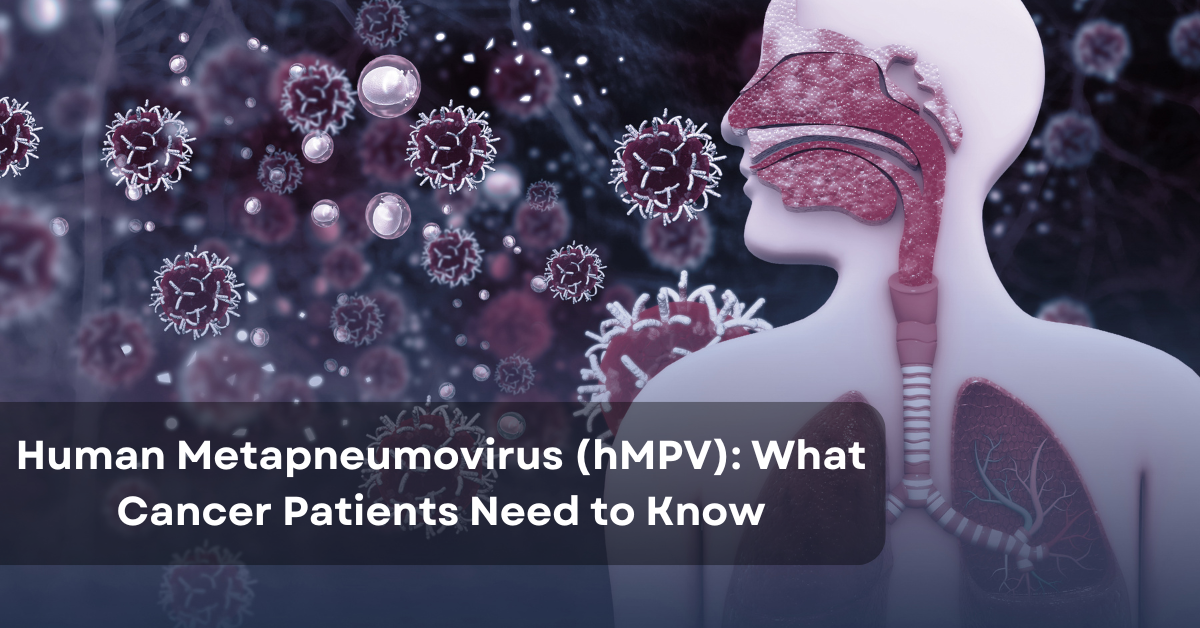
As an oncologist specializing in cancer care, I, Dr. Saadvik Raghuram, believe it’s crucial to shed light on infections like Human Metapneumovirus (hMPV)—a potentially severe threat for individuals with compromised immune systems, such as cancer patients undergoing treatment.
What is Human Metapneumovirus (hMPV)?
Discovered in 2001, Human Metapneumovirus (hMPV) is a respiratory virus from the Paramyxoviridae family, closely related to the Respiratory Syncytial Virus (RSV). While healthy individuals often experience mild symptoms, hMPV can cause severe respiratory illness in:
- Young children
- Older adults
- Immunocompromised individuals, including cancer patients and organ transplant recipients
Common Symptoms of hMPV
The symptoms of hMPV range from mild to severe respiratory distress. Common signs include:
- Fever
- Cough
- Nasal congestion or runny nose
- Shortness of breath
- Wheezing
In high-risk groups, severe cases may lead to bronchitis or pneumonia, often requiring hospitalization.
How Does hMPV Spread?
hMPV is highly contagious and spreads through:
- Respiratory droplets: Released when an infected person coughs or sneezes.
- Direct contact: Touching contaminated surfaces and then touching your face.
- Close contact: Prolonged interaction with an infected individual, such as caregiving.
The virus is most active during late winter and spring, similar to RSV and influenza.
Why is hMPV a Serious Concern for Cancer Patients?
Cancer treatments like chemotherapy, radiation, or stem cell transplants weaken the immune system, leaving patients more vulnerable to infections. For these individuals, even a seemingly mild cold can escalate into life-threatening complications.
Preventing hMPV Infections
Currently, there is no specific vaccine or antiviral treatment for hMPV. However, preventive measures can significantly reduce the risk:
- Practice good hygiene: Wash hands frequently with soap and water.
- Avoid contact with sick individuals: Minimize exposure to anyone showing symptoms of respiratory illness.
- Disinfect surfaces: Clean commonly touched items like doorknobs and phones regularly.
- Boost immunity: Maintain a healthy diet, stay hydrated, and get adequate rest.
- Seek early medical attention: For persistent respiratory symptoms, consult a doctor promptly.
Treatment Options for hMPV
Treatment for hMPV focuses on managing symptoms, as no targeted antiviral treatments currently exist:
- Symptom management: Use fever reducers and maintain hydration.
- Oxygen therapy: Administered in severe cases.
- Hospitalization: For complications like pneumonia, hospitalization may be necessary.
Conclusion by Dr. Saadvik Raghuram
Human Metapneumovirus (hMPV) might not be as well-known as other respiratory illnesses, but its potential impact on vulnerable groups—especially cancer patients—is significant. Staying informed, taking preventive measures, and seeking timely medical care are essential to safeguarding your health.
As one of the best oncologists in Hyderabad, I am committed to delivering comprehensive care that addresses not only cancer but also associated health risks. If you or your loved ones have concerns about hMPV or any other health issues, I’m here to provide expert guidance.
Stay vigilant, prioritize your health, and follow my blog for more valuable insights.
Understanding the Risk If you’re a young woman diagnosed with breast cancer …
In today’s fast-paced world, many women delay pregnancy or experience weight gain …
Each year, over 300,000 women around the world are diagnosed with ovarian …
Cancer care in 2025 is not what it was even five years …
Cancer remains one of the leading causes of death globally, but research …
Young Adults and Cancer: What You Need to Know When you think …

